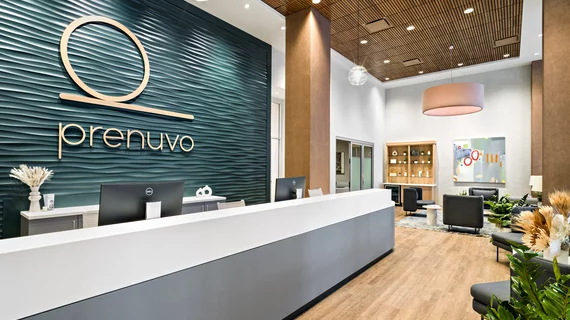Kim Kardashian promotes whole-body MRI service from Prenuvo, drawing concern from some
Kim Kardashian recently received a full-body MRI scan from imaging startup Prenuvo, drawing scorn from some fans and physicians.
She shared her experience Tuesday via Instagram, hoping to inform her 363 million followers about this “lifesaving machine.” The California-based wellness company offers an imaging exam to asymptomatic individuals for a $2,500 out-of-pocket charge, empowering consumers to “take charge of their health.”
“The Prenuvo full-body scan has the ability to detect cancer and diseases such as aneurysms in its earliest stages, before symptoms arise,” Kardashian posted Aug. 8. “It was like getting a MRI for an hour with no radiation. It has really saved some of my friends lives and I just wanted to share #NotAnAd.”
The company and its services have drawn considerable interest, raising $70 million from investors including Cindy Crawford. Prenuvo launched ambitious expansion plans earlier this year, opening several new locations across major cities, and it has now performed “tens of thousands” of scans across the country.
Her announcement drew criticism from both fans and members of the medical community, including those who asserted that magnetic resonance imaging does not require radiation (nor is Prenuvo’s service “like an MRI,” it is an MRI). Members of the specialty have advocated against the practice of imaging individuals without any ailments, which can trigger additional workups, biopsies, exams and procedures for findings that end up being of little importance. In an interview with Insider last December, radiologist Matthew Davenport, MD, vice chair of the ACR's Quality and Safety Commission, called the service a “terrible idea.”
“One of the biggest celebrities @KimKardashian is freely (#notanad she says) promoting a [company] that scans asymptomatic people. Most MDs advise against this. Who will people trust? You already know the answer,” radiologist Tarang Patel, MD, posted to social media.
“I can see how for a lay person or tech bro it is hard to grasp why discovering the ‘problem’ ‘early’ can not only be unhelpful but also harmful,” responded Amit Achhra, MD, PhD, a researcher and infectious disease expert with Yale Medicine. “Situation [is] very unique to human medicine. We need good examples and stories in media so lay people can understand.”
Others in the Instagram comments also chastised Kardashian for promoting a service that many of her followers likely could not afford, Glamour detailed.
Radiologist Raj Attariwala, MD, PhD, co-founded the company, which says its model is based on more than 10 years of clinical work. Prenuvo’s scanners can check for over 500 conditions, including solid tumors, and it estimates that 1 in every 20 patients are alerted to “lifesaving diagnoses.”
“After creating a customized radiation free MRI technology in 2011 and meeting directly with thousands of patients and their physicians over the course of a decade, we have built a powerful process with unique capabilities,” Attariwala said in a June announcement of a new partnership with age-management platform Cenegenics.
Radiology practice SimonMed Imaging also launched its own whole-body MRI offering in June, charging much less than startups such as Prenuvo.

